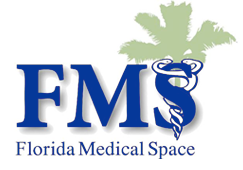How A Napkin Sketch Became A Model For Academic Medical Partnerships
What began as an idea scribbled on a napkin has evolved into one of Florida’s most successful healthcare collaborations: the thriving partnership between the University of South Florida (USF) and Tampa General Hospital (TGH). Today, the leaders of both institutions can’t imagine a future without it.
This innovative model is now being closely studied by Florida State University (FSU) and leaders in Tallahassee as they explore options for transforming the city’s flagship hospital, Tallahassee Memorial HealthCare (TMH), into an academic medical center. The idea gained urgency following recent discussions about potentially selling TMH — a move that FSU hopes would allow it to bring the hospital into its growing health system, FSU Health.
However, community members and hospital leaders, including TMH CEO Mark O’Bryant, have voiced strong opposition to an outright sale. Instead, many are advocating for a partnership model, similar to the USF-TGH alliance, that preserves community ownership while reaping the benefits of academic affiliation.
A Blueprint for Growth and Excellence
Since joining forces six years ago, USF Health and Tampa General have undergone dramatic growth. What was once a respected local hospital and university has now become a national leader in academic medicine. Together, they’ve built a robust network of more than 1,100 healthcare providers across 42 specialties, operating in dozens of clinics. Their collaboration has driven research expansion, enhanced medical education, and improved patient outcomes.
Dr. Charles Lockwood, Executive Vice President of USF Health, attributes much of this success to the deep, trust-based relationship between the two institutions. “Tampa General is the economic engine of the school,” he said, noting that most clinical training and research activity occurs at the hospital. USF’s College of Medicine has also risen dramatically in national rankings, and U.S. News now places it as the top-tier research medical school in Florida.
TGH has seen similar gains. It now has eight nationally ranked specialty programs, including a top-10 ranking for its OB-GYN program. The synergy between hospital and university has allowed both to attract top-tier talent, conduct cutting-edge research, and expand services throughout the region.
Lessons for Tallahassee
FSU and TMH both share a long-term vision of creating an academic medical center, but their path forward is still uncertain. In 2021, the two institutions hired consultants to assess their alignment and readiness for such a partnership. The findings pointed to cultural differences and a “transactional” relationship that lacked shared mission and trust.
Dr. Lockwood emphasized that building a successful partnership takes time, transparency, and shared purpose. “You have to know what you want to be when you grow up,” he said. At USF and TGH, that meant putting egos aside and focusing on what was best for patients and the community.
In Tallahassee, city leaders must now decide whether to maintain community ownership of TMH or transfer control to FSU. While FSU remains tight-lipped about why ownership is preferred, the university has said that any transition would be long-term and would not disrupt current healthcare services.
The Power of Partnership Without Ownership
A key takeaway from the USF-TGH model is that a hospital and a university don’t need to merge under one roof to function as one. Dr. Lockwood, who previously worked at Yale and Ohio State — both with differing academic medical center structures — said he saw no clear advantage to ownership when a partnership is done right.
“At Yale, we partnered. At Ohio State, we owned the hospital. I’ve seen both sides,” he said. “The key difference wasn’t the structure — it was the alignment of values and vision.”
He and TGH CEO John Couris spent years nurturing that alignment, and now the institutions are so in sync that, as Lockwood put it, “John can finish my sentences.”
The two entities share a joint board with equal representation, make decisions together, and maintain open lines of communication with community physicians — many of whom choose to participate in academic activities without being required to.
A Win-Win for the Future
Lockwood sees the current structure as ideal: USF benefits from being part of the state university system, while TGH retains operational flexibility as a nonprofit hospital. “It’s a win-win,” he said. “There’s absolutely no need for ownership.”
As Tallahassee considers its next move, the USF-TGH story offers a powerful reminder that partnerships — when built on trust, shared goals, and mutual respect — can transform not only institutions, but entire communities.
Source: Tallahassee Democrat
For more information contact us:
954.346.8200 x 201



